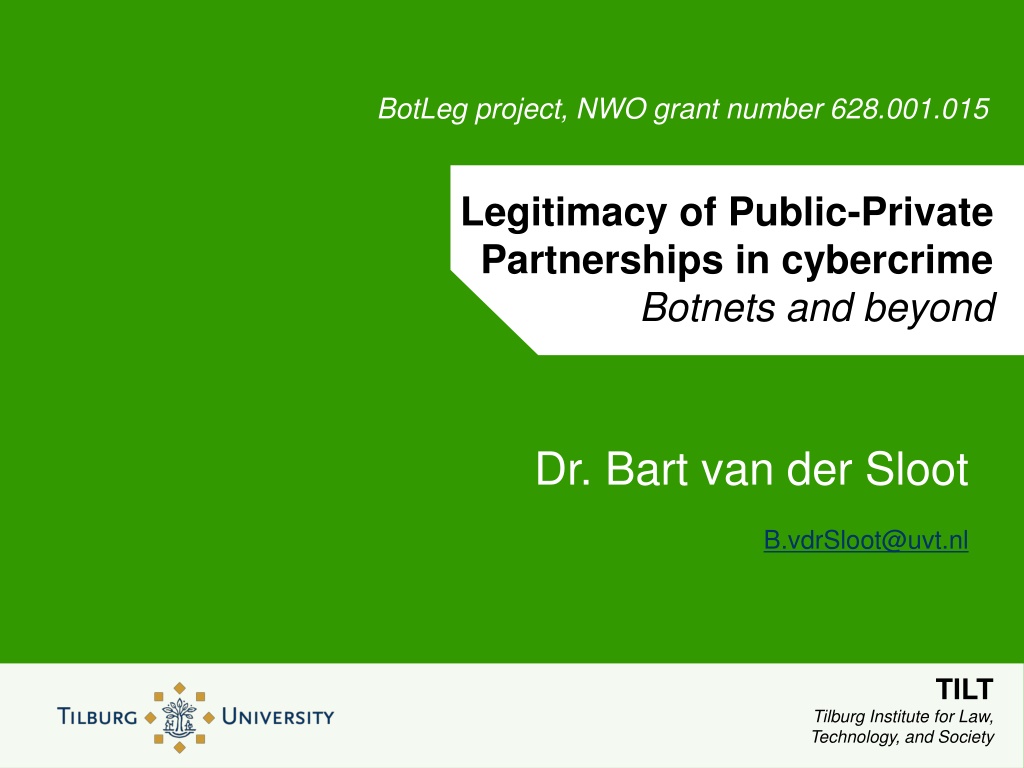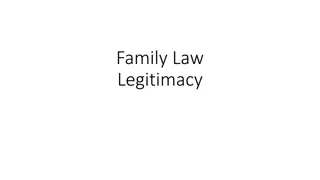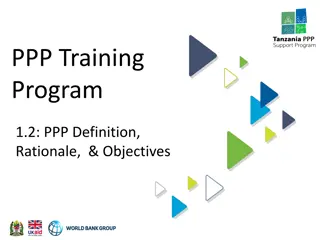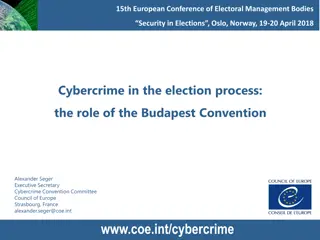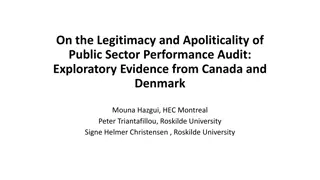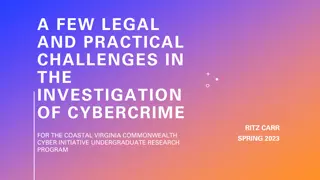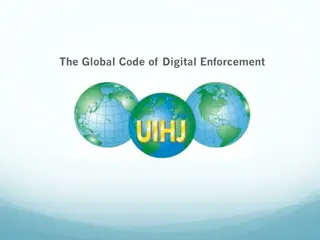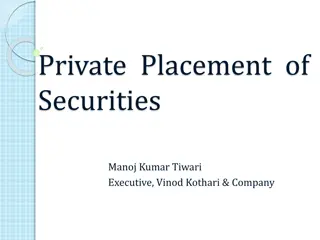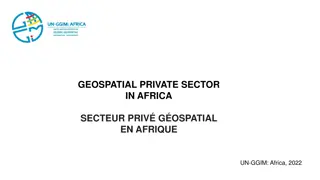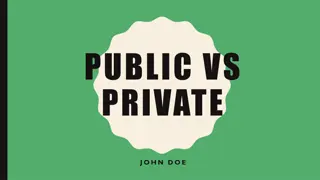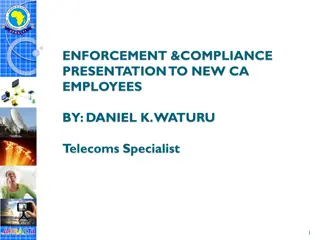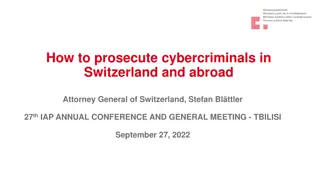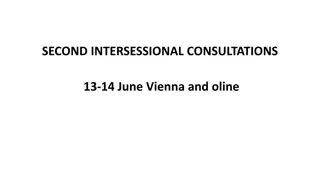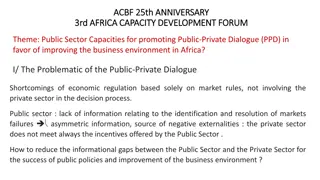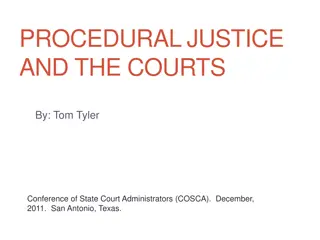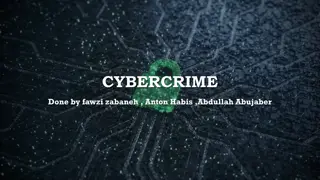Exploring Legitimacy and Public-Private Partnerships in Cybercrime Enforcement
Investigate the legitimacy of public-private partnerships in addressing cybercrime, focusing on botnets and related issues. The study examines the classic model of legitimacy involving the state, citizens, and the market, and explores different stakeholders' roles in ensuring legitimacy in enforcement mechanisms. Also, it delves into the nuances of public-private collaborations in law enforcement and the convergence of private norms with public interests, especially in data protection regulations and PSI directive re-use.
Uploaded on Oct 05, 2024 | 0 Views
Download Presentation

Please find below an Image/Link to download the presentation.
The content on the website is provided AS IS for your information and personal use only. It may not be sold, licensed, or shared on other websites without obtaining consent from the author. Download presentation by click this link. If you encounter any issues during the download, it is possible that the publisher has removed the file from their server.
E N D
Presentation Transcript
BotLeg project, NWO grant number 628.001.015 Legitimacy of Public-Private Partnerships in cybercrime Botnets and beyond Dr. Bart van der Sloot B.vdrSloot@uvt.nl TILT Tilburg Institute for Law, Technology, and Society
Legitimacy: classic model State Citizens Market TILT Tilburg Institute for Law, Technology, and Society
Legitimacy: classic model State General interest Citizens Market Private interests Group interests TILT Tilburg Institute for Law, Technology, and Society
Legitimacy: classic model State General interest Public organisations + neutral class Market Citizens Group interests Associations/unions/ political parties Private interests Individuals/family TILT Tilburg Institute for Law, Technology, and Society
Legitimacy: classic model State General interest Public organisations + neutral class Public domain Market Citizens Group interests Associations/unions/political parties Economic domain Private interests Individuals/family Private domain TILT Tilburg Institute for Law, Technology, and Society
Public-Private partnerships & citizen engagement in Law Enforcement
Enforcement of private norms becomes a public interest & use of public power to enforce economic interests General Data Protection Regulation: Those derogations should in particular apply to data transfers required and necessary for important reasons of public interest, for example in cases of international data exchange between competition authorities, tax or customs administrations, between financial supervisory authorities, between services competent for social security matters, or for public health, for example in the case of contact tracing for contagious diseases or in order to reduce and/or eliminate doping in sport. Re-use of PSI Directive
Provision of public utilities by private companies & citizens through philanthropy
Smart cities: public space designed by private parties & citizens
Legitimacy: adapted model State Citizens General interest Individuals/family Private & Public domain Market General interest Public organisations + neutral class Public domain General interest Companies Economic & Public domain TILT Tilburg Institute for Law, Technology, and Society
Three models of future legitimacy: return to the classic model State General interest Public organisations + neutral class Public domain Market Citizens Group interests Associations/unions/political parties Economic domain Private interests Individuals/family Private domain TILT Tilburg Institute for Law, Technology, and Society
Three models of future legitimacy: market replaces the public sector (smart cities & gated communities) State Market General interest Public organisations + neutral class Public domain Group & public interests Companies Economic & public domain Citizens Private interests Individuals/family Private domain TILT Tilburg Institute for Law, Technology, and Society
Three models of future legitimacy: state changes its function and role Market Citizens Group interests Associations/unions/political parties Economic domain Private interests Individuals/family Private domain (2) Night-watchman state (public utilities provided by private companies & citizens philanthropy) (1) State uses its powers to aid market interests (doping & re-use of psi) State (3) State determines public interests, but asks private parties to enforce them (PPP-vigilantes) TILT Tilburg Institute for Law, Technology, and Society
Thank you for your attention Questions? Discussion! e.j.koops@uvt.nl B.vdrSloot@uvt.nl TILT Tilburg Institute for Law, Technology, and Society
